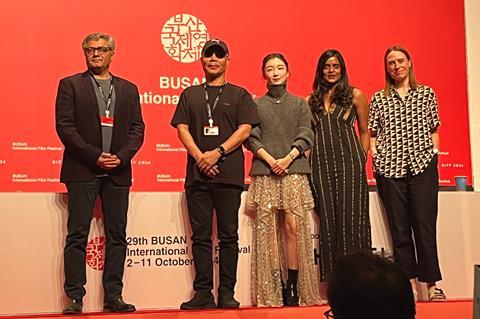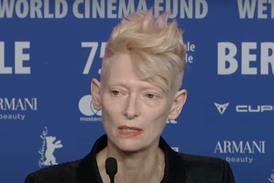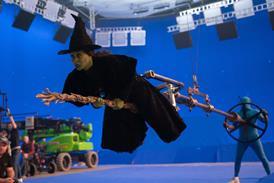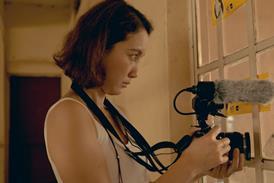
Exiled Iranian director Mohammad Rasoulof has described the gratitude he feels about having his film The Seed Of The Sacred Fig selected as Germany’s entry to the Oscars.
Speaking at the Busan International Film Festival as head of the New Currents jury, the director said that Germany’s decision to submit the feature “has great meaning. I felt they were opening their arms and understanding other cultures.”
Although set in Tehran, with a mix of German and Iranian cast and crew, The Seed Of The Sacred Fig is produced by Rasoulof’s German outfit Run Way Pictures alongside France’s Parallel45 in co-production with Arte France Cinéma.
The film follows an investigating judge in Tehran’s Revolutionary Court who is suffering a crisis of conscience, and played in competition in Cannes where it won a Special Jury Prize. Earlier this year, Rasoulof fled Iran after being handed an eight-year prison sentence of his ongoing criticism of the country’s regime, and now lives in Germany.
The director also spoke about his desire to continue making films, hinting at future projects including several stories he had written while he was still in Iran. “Filmmakers should make films in any circumstance,” he added. “I always try to find a way to narrate the stories that are in my life.”
Joining Rasoulof on the New Currents jury are Korean director Lee Myung-se, Chinese actress Zhou Dongyu, Indian actress Kani Kusruti, and Rotterdam festival director Vanja Kaludjercic.
Lee, best known for his police procedural Nowhere to Hide, spoke about his judging criteria, and that he is looking for films that “tell a story that can only be told through the medium of cinema”.
Zhou, who first attended the festival in 2010 when starring in Zhang Yimou’s festival opener Under the Hawthorn Tree, expressed her optimism for Chinese and Korean collaboration ahead of the Year of Cultural Exchange as agreed by the Korean, Chinese and Japanese governments for 2025-26.
Kusruti, star of Sundance winner Girls Will Be Girls and Cannes Grand Prix winner All We Imagine As Light, spoke about the evolving characteristics of Indian cinema. “In the past decade, Indian cinema is turning into a really diverse category, and is finding its own language which I’m very proud of,” she said.
Kaludjercic also voiced her admiration for Indian cinema, explaining that during the selection process for Rotterdam, “the language of cinema that surprises us most nowadays comes from India. In our selection, we find ourselves with a so-called ‘Indian problem’, in the sense that there are so many more films we want to show than we can possibly fit into our programme.”
Busan’s New Currents Awards are given to two films from a selection of debut or second features from new Asian directors. Last year’s winners were Iqbal H. Chowdhury’s The Wrestler and Mori Tatsuya’s September 1923.

























No comments yet